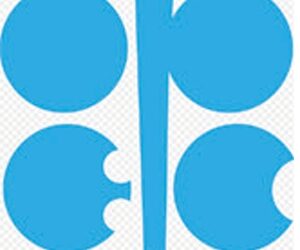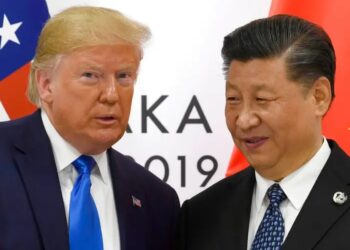The Financial Action Task Force (FATF) cited only two countries—Iran and North Korea—for flouting efforts to stop money laundering and terrorism financing.
FATF called on all the other countries of the world to apply counter-measures to protect the global financial system from the risks it says are emanating from Iran and North Korea as a result of their failure to fight money laundering and terrorism financing.
Just one month ago, the Central Bank of Iran announced that it had been removed from the list of money launderers. But FATF did not meet until last week and it voted to keep Iran and North Korea in its worst-offender category, not to remove Iran as the Central Bank claimed.
In recent years, the Islamic Republic has taken to making more-and-more utterly false claims, such as the one about it being de-listed as a money launderer.
FATF met last week in Mexico. There it voted to keep Iran in the worst offender category where it has been since 2007.
A FATF statement, filled with its unique jargon, said:
“The FATF remains concerned by Iran’s failure to meaningfully address the on-going and substantial deficiencies in its anti-money laundering and combating the financing of terrorism (AML/CFT) regime. The FATF remains particularly concerned about Iran’s failure to address the risk of terrorist financing and the serious threat this poses to the integrity of the international financial system. The FATF urges Iran to immediately and meaningfully address its AML/CFT deficiencies, in particular by criminalizing terrorist financing and effectively implementing suspicious transaction reporting (STR) requirements.”
The FATF also called on other countries to isolate Iran and limit dealings with its financial institutions that could make them unwitting participants in money laundering or terrorism financing. This has been FATF’s position for more than two years. FATF’s call has greatly helped the US Treasury campaign to shut off Iranian banking contacts with the rest of the world.
Iran had been alone at the top of the worst-offender list last year. Its position there was renewed in February when North Korea joined it. In February, FATF listed 44 countries in a second category of countries not making sufficient progress to fight money laundering or terrorism financing. Last week, that list was pruned to just eight: Bolivia, Cuba, Ethiopia, Kenya, Myanmar, Sri Lanka, Syria and Turkey.
One month ago, Abdol-Mahdi Arjomand-nejad, the head of the money laundering division of the Central Bank, said Iran had been removed from the global listing because of the actions the Central Bank had taken to combat money laundering.
According to the Mehr news agency, Arjomand-nejad said Iran’s accomplishments in combating money laundering had been recognized at the recent meeting of the World Bank (WB) and International Monetary Fund (IMF) in Washington and that “led to the removal of Iran’s name from the list of countries involved in money laundering operations.”
But it is the Paris-based FATF, not the Washington-based IMF or WB, that pursues money laundering and cites governments that are not doing enough.
FATF was established by the seven major economic powers in 1989. It has since expanded to 34 members, both governments and international organizations. FATF has drafted a list of standards and guidelines that it wants national banking systems to adopt and enforce to “counter the use of the financial system by criminals.” Its targets are money laundering, used by criminal groups and drug traffickers to make illegal profits look like honest money, and terrorist financing, for which Iran and North Korea appear to be its chief concerns.
Here is the full text of FATF’s declaration last Friday advising all countries to be wary of dealing with Iranian banks:
“The FATF reaffirms its call on members and urges all jurisdictions to advise their financial institutions to give special attention to business relationships and transactions with Iran, including Iranian companies and financial institutions. In addition to enhanced scrutiny, the FATF reaffirms its 25 February 2009 call on its members and urges all jurisdictions to apply effective counter-measures to protect their financial sectors from money laundering and financing of terrorism (ML/FT) risks emanating from Iran.
“FATF continues to urge jurisdictions to protect against correspondent relationships being used to bypass or evade counter-measures and risk mitigation practices and to take into account ML/FT risks when considering requests by Iranian financial institutions to open branches and subsidiaries in their jurisdiction. If Iran fails to take concrete steps to improve its AML/CFT regime, the FATF will consider calling on its members and urging all jurisdictions to strengthen counter-measures in October 2011,” the statement said.























